detail profile michael bryant
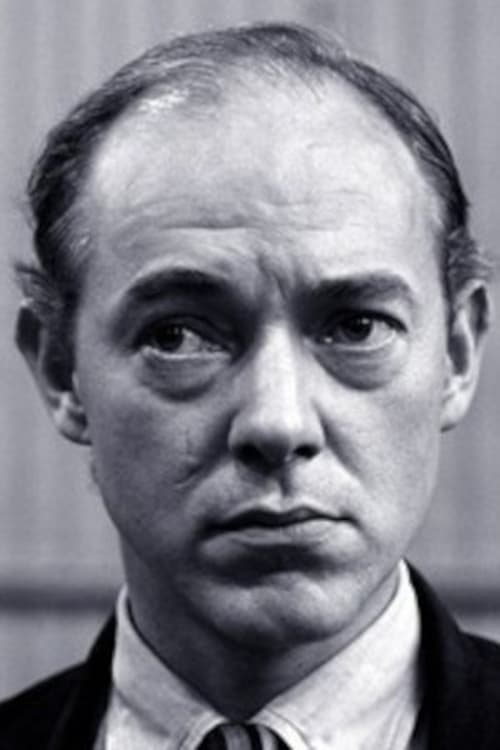
Riwayat Hidup
From Wikipedia, the free encyclopedia.
Michael Dennis Bryant (5 April 1928 – 25 April 2002) was a British stage and television actor.
Bryant attended Battersea Grammar School and after service in the Merchant Navy and Army, he attended drama school and appeared in many productions on the London stage.
He made his film debut in 1955.
His greatest role was Mathieu in BBC2's 1970 adaptation of Jean-Paul Sartre's Roads to Freedom trilogy.
His guest star appearance as Wing Commander Marsh, who feigns insanity in the 'Tweedledum' episode of the BBC drama series, Colditz (1972), is still widely remembered.
Bryant was chosen by Orson Welles to play the lead role in The Deep, Welles's adaptation of the Charles Williams novel Dead Calm.
The production frequently ran out of money, and following the death of actor Laurence Harvey in 1973, Welles stopped production and announced the movie - which had been completed except for one special effects shot of a ship exploding - would not be released.
(The novel was finally adapted to film in 1989.
)
In 1969 Bryant took his love of the stage on a strange trip into the realm of cult films, playing a clever male prostitute who outwits a delusional family of killers in the dark comedy Mumsy, Nanny, Sonny and Girly, an adaptation of a play by Maisie Mosco.
Due to poor marketing and a lack of faith in the film by the distributor, the film quickly sank into obscurity even before it could develop a cult following.
One of Bryant's most memorable performances was in the classic BBC television play The Stone Tape (1972), in which he plays the leader of a team of scientists who investigate ghost sightings in a brooding gothic mansion.
Bryant also had a supporting role as a sadistic psychiatrist in the cult classic black comedy The Ruling Class, with Peter O'Toole and Alastair Sim.
He also appeared in Richard Attenborough's Gandhi (1982) as a British diplomat.
Having played Lenin in the film Nicholas and Alexandria, Bryant would later reprise the role in Robert Bolt's play State of Revolution (1977).
He had previously co-starred in Bolt's unsuccessful Gentle Jack.
The 1977 production of a Bolt play though was significant for featuring the first role he performed at the National Theatre where he was a constant presence for a quarter of a century.
Bryant, described by Michael Billington as "rock-solid company man", had earlier performed with the Royal Shakespeare Company from 1964, including the premiere production of Harold Pinter's The Homecoming (1965), in which he played Teddy, the returning academic.
In 1980, Michael Bryant won the London Drama Critics Circle Theatre Award for Best Actor, and his other theatrical performances were equally well thought of.
Bryant won Laurence Olivier Awards in 1988 and 1990 and was nominated twice more.
Description above from the Wikipedia article Michael Bryant (actor), licensed under CC-BY-SA, full list of contributors on Wikipedia
Info Pribadi
Peran Yang Di Mainkan Michael Bryant
 A mother and father in search...
A mother and father in search...The Miracle Maker 2000
A mother and father in search of help for their sick daughter cross paths with an extraordinary carpenter named Jesus, who has devoted his life to spreading God's word. An amazing miracle brings to light the true meaning of Christ, and the sacrifices he endured for the deliverance of mankind. A compelling story of faith, trust, and devotion.
 The story of a woman who...
The story of a woman who...Heading Home 1991
The story of a woman who falls in love with two very different men in post World War II London.
 When Sir John Falstaff decides that...
When Sir John Falstaff decides that...The Merry Wives of Windsor 1982
When Sir John Falstaff decides that he wants to have a little fun he writes two letters to a pair of Window wives: Mistress Ford and Mistress Page. When they put their heads together and compare missives, they plan a practical joke or two to teach the knight a lesson. But Mistress Ford's husband is a very jealous man and is pumping Falstaff for information of the affair. Meanwhile the Pages' daughter Anne is beseiged by suitors.
 In the early years of the 20...
In the early years of the 20...Gandhi 1982
In the early years of the 20th century, Mohandas K. Gandhi, a British-trained lawyer, forsakes all worldly possessions to take up the cause of Indian independence. Faced with armed resistance from the British government, Gandhi adopts a policy of 'passive resistance', endeavouring to win freedom for his people without resorting to bloodshed.
 American Neil Bowman is traveling through...
American Neil Bowman is traveling through...Caravan to Vaccarès 1974
American Neil Bowman is traveling through France when he meets British photographer Lila. They are hired by French land owner Duc de Croyter to escort a Hungarian scientist to New York. But they soon realize that the job is not a cushy number, and have to deal with a gang of kidnappers who will stop at nothing to get their hands on the scientist
 A research team from an electronics...
A research team from an electronics...The Stone Tape 1972
A research team from an electronics company move into an old Victorian house to start work on finding a new recording medium. When team member Jill Greeley witnesses a ghost, team director Peter Brock decides not only to analyse the apparition, which he believes is a psychic impression trapped in a stone wall (dubbed a "stone tape"), but to exorcise it too - with terrifying results...
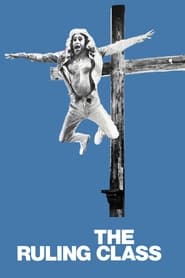 When the Earl of Gurney dies...
When the Earl of Gurney dies...The Ruling Class 1972
When the Earl of Gurney dies in a cross-dressing accident, his schizophrenic son, Jack, inherits the Gurney estate. Jack is not the average nobleman; he sings and dances across the estate and thinks he is Jesus reincarnated. Believing that Jack is mentally unfit to own the estate, the Gurney family plots to steal Jack's inheritance. As their outrageous schemes fail, the family strives to cure Jack of his bizarre behavior, with disastrous results.
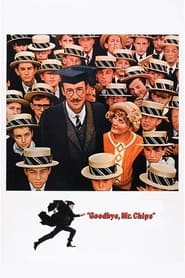 Academy Awardhonoree Peter OToole stars in...
Academy Awardhonoree Peter OToole stars in...Goodbye, Mr. Chips 1969
Academy Award-honoree Peter O'Toole stars in this musical classic about a prim English schoolmaster who learns to show his compassion through the help of an outgoing showgirl. O'Toole, who received his fourth Oscar-nomination for this performance, is joined by '60s pop star Petula Clark and fellow Oscar-nominee Michael Redgrave.
 Charles Dobbs is a British secret...
Charles Dobbs is a British secret...The Deadly Affair 1967
Charles Dobbs is a British secret agent investigating the apparent suicide of Foreign Office official Samuel Fennan. Dobbs suspects that Fennan's wife, Elsa, a survivor of a Nazi Germany extermination camp, might have some clues, but other officials want Dobbs to drop the case. So Dobbs hires a retiring inspector, Mendel, to quietly make inquiries. Dobbs isn't at all sure as there are a number of anomalies that simply can't be explained away. Dobbs is also having trouble at home with his errant wife, whom he very much loves, having frequent affairs. He's also pleased to see an old friend, Dieter Frey, who he recruited after the war. With the assistance of a colleague and a retired policeman, Dobbs tries to piece together just who is the spy and who in fact assassinated Fennan.
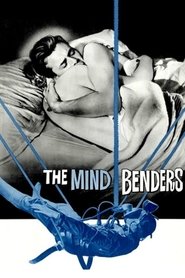 A British scientist is discovered to...
A British scientist is discovered to...The Mind Benders 1963
A British scientist is discovered to have been passing information to the Communists, then kills himself. Another scientist decides that they might have brainwashed him by a sensory deprivation technique, but he doesn’t know if someone really can be convinced to act against their strongest feelings. So he agrees to be the subject in an experiment in which others will try to make him stop loving his wife.
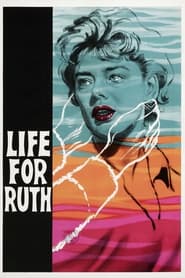 John Harris finds himself ostracized and...
John Harris finds himself ostracized and...Life for Ruth 1962
John Harris finds himself ostracized and placed on trial for allowing his daughter Ruth to die. His religious beliefs forbade him to give consent for a blood transfusion that would have saved her life. Doctor Brown is determined to seek justice for what he sees as the needless death of a young girl.
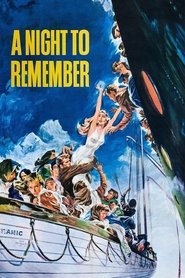 The sinking of the Titanic is...
The sinking of the Titanic is...A Night to Remember 1958
The sinking of the Titanic is presented in a highly realistic fashion in this tense British drama. The disaster is portrayed largely from the perspective of the ocean liner's second officer, Charles Lightoller. Despite numerous warnings about ice, the ship sails on, with Capt. Edward John Smith keeping it going at a steady clip. When the doomed vessel finally hits an iceberg, the crew and passengers discover that they lack enough lifeboats, and tragedy follows.
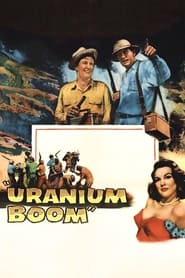 Exlumberjack Brad Collins Dennis Morgan and...
Exlumberjack Brad Collins Dennis Morgan and...Uranium Boom 1956
Ex-lumberjack Brad Collins (Dennis Morgan) and mining engineer Grady Mathews (William Talman) find uranium in the Colorado badlands. While Grady guards the claim, Brad goes to register it in town, where he meets and marries Jean Williams (Patricia Medina.) Returning to the claim, Brad learns that Jean was once Grady's fiancee. Grady, as one would expect, is somewhat put out and leaves the mine in Brad's hands, while he hooks up with a confidence man and engineers a scheme to break the back of Brad's somewhat rapidly-created mining empire.
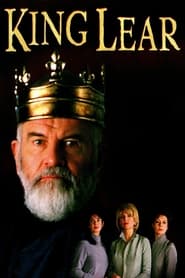 Adaptation of Shakespeares play
Adaptation of Shakespeares play Hamlet Prince of Denmark returns home...
Hamlet Prince of Denmark returns home... Biography of Russian physicist dissident Andrei...
Biography of Russian physicist dissident Andrei... Tsar Nicholas II the inept last...
Tsar Nicholas II the inept last...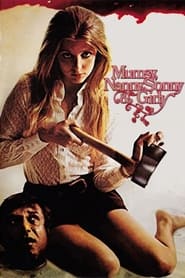 A wealthy fatherless British clan kidnaps...
A wealthy fatherless British clan kidnaps...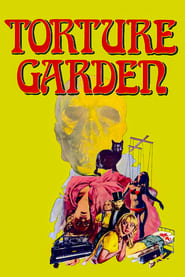 Five people visit a fairground sideshow...
Five people visit a fairground sideshow...